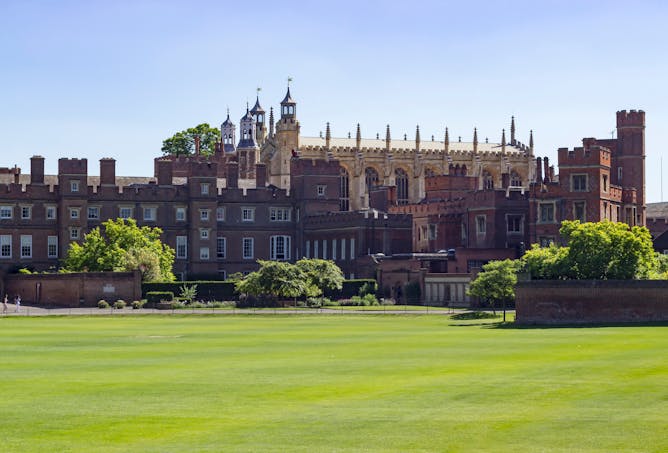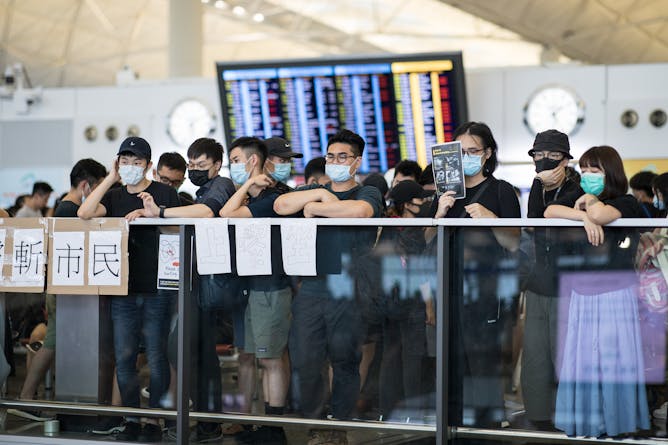|
|
|
Editor's note
|
|
When I think back to my own A-level results day, I now realise how lucky I was as there were no surprises for me in that exam envelope. I was among the minority of students to achieve their predicted grades – but worryingly this isn’t the case for most young people. Evidence shows the majority of predicted grades are inaccurate – only 16% of students receive their projected A-level results. And the students most likely to be under-predicted on grades are disadvantaged students and those from minority backgrounds.
Underestimating grades can have serious consequences for students. Not only can it impact upon young people’s choices as to where to study but it can also mean they are less likely to end up at a top university – meaning many students are being held back from reaching their full potential.
A new “fairer” system of post-qualification admissions has been proposed by Labour that would see students apply for their higher education place after receiving their results. This would also bring an end to the clearing process – which can be a highly stressful and worrying time for students. The criticism is that this would require a full rethink of the whole school calendar. But as Iain Garner writes, this is more than possible – and in many
other countries, post-qualification admissions are the norm.
This might be a step in the right direction, though it still doesn’t help tackle the fact that private school graduates earn more and are more likely to get top professional jobs. But rather than integrating private schools into the state system, two sociologists say the answer lies in addressing inequalities between state schools.
We also bring you the latest on the Hong Kong protests – and the lessons Beijing can learn from the British response to the 1967 riots.
|
Holly Squire
Commissioning Editor
|

|
|
Top stories
|

shutterstock/Monkey Business Images
Iain Garner, Sheffield Hallam University
Only 16% of predicted grades are accurate and the current system penalises disadvantaged students and those from minority backgrounds.
|

Kurt Pacaud/Shutterstock
Dave Griffiths, University of Stirling; Jennifer M Ferguson, University of Stirling
Integrating private schools into the state system will offer little benefit to socially disadvantaged pupils. Addressing the inequalities between state schools should be the focus.
|

Protestors in Hong Kong airport on August 12.
Jerome Favre/EPA
Nicholas Ross Smith, University of Nottingham; Mark Boyd, University of Auckland
What Beijing could learn from the British response to the 1967 Hong Kong riots.
|
Politics + Society
|
-
Toby James, University of East Anglia
Voters complained of being turned away from polling stations in the European elections, and local teams are struggling to keep registers up to date on tight budgets.
-
Carly-Emma Leachman, Nottingham Trent University
The UK is facing a population crisis with birth rates at an all-time low.
-
Nick Chater, Warwick Business School, University of Warwick
New research suggests people from Germany, Russia, the UK and US all think their own country was the most important in World War II.
-
Stephan Lewandowsky, University of Bristol
You can't be gaslighted if you don't get confused and you won't get confused if you are not misled in the first place.
-
Simon J Smith, Staffordshire University
Tensions in the Gulf are a stark reminder of the choices ahead for the UK on security cooperation after Brexit.
|
|
Science + Technology
|
-
John Grant, Sheffield Hallam University; Keith Baker, Glasgow Caledonian University
More than a century since humans learned to fly, we need to revolutionise how we stay up there.
-
Neve Gordon, Queen Mary University of London
Around 2.2 billion gamers regularly sit at home, many playing action-packed war games, which fuse virtual boot camps with special operations aimed at eliminating enemies.
-
Juan Mateos-Garcia, Nesta; Joysy John, Nesta
Only 13.83% of AI authors in arXiv are women and, in relative terms, the proportion of AI papers co-authored by at least one woman has not improved since the 1990s.
|
|
Business + Economy
|
-
Laura Reynolds, Cardiff University; Annette Roberts, Cardiff University; Max Munday, Cardiff University
NHS Wales takes the biggest share of public spending and supports 11% of the total employed and self-employed.
|
|
Cities
|
-
Oli Mould, Royal Holloway
City rankings have become big business – but this expert thinks it's best to ignore them.
|
|
| |
Featured events
|

|
Institute of Mental Health, University of Nottingham Innovation Park, , Nottingham, Nottingham, NG7 2TU, United Kingdom of Great Britain and Northern Ireland — University of Nottingham
|

|
34 Broad Street, Oxford, Oxfordshire, OX1 3BD, United Kingdom of Great Britain and Northern Ireland — University of Oxford
|

|
Berrill Lecture Theatre The Open University Walton Hall, Milton Keynes, Buckinghamshire, MK7 6AA, United Kingdom of Great Britain and Northern Ireland — The Open University
|

|
Here East, Queen Elizabeth Park, London, London, City of, E15 2GW, United Kingdom of Great Britain and Northern Ireland — UCL
|
|
|
|
| |
| |
| |
| |
| |
|
|
|
|
|
|
|